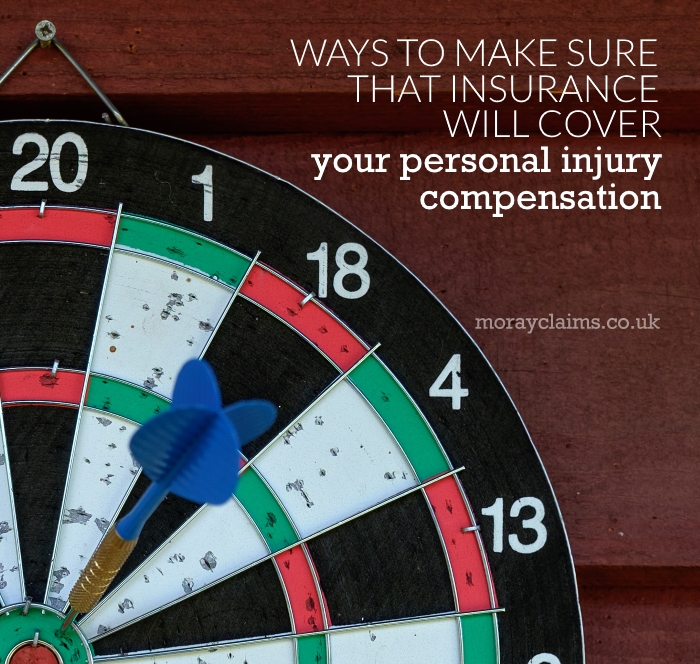One of the first things a personal injury solicitor will consider, if you have a potential claim, is how you are going to get paid.
(Yes, they’ll also think about how they might get paid for any work they do, but the first consideration has to be how easily you will recover compensation).
It’s partly about whether you’re likely to be entitled to compensation – can you prove breach of duty or negligence? Fundamentally, though, it’s about ensuring as far as possible that, assuming your claim does succeed, someone will be there to pick up the tab – to pay you the compensation. Ideally, you want to know that there is insurance cover and that an insurance company will pay out on your claim.
In this article, we will look at three aspects of insurance in relation to personal injury claims.
Firstly, when can it happen that there is no insurance? Second, in which situations ought there to be insurance to cover personal injury compensation? And, finally, what steps does the law take to ensure that insurance is in place?
First of all, why might there be no insurance cover in a particular situation?
In some situations, there is usually an insurance background. In other words, if your claim is successful, you can be confident that there will be an insurance company that has to pay out to you.
You absolutely want to avoid the situation where your claim succeeds, on the face of it, but you cannot extract the compensation payment from anyone. That’s an empty victory. It can happen if the person against whom you are claiming is not insured and has no assets.
It can even happen where the person or organisation had, say, public liability insurance but they had a high self-insured amount (kind of like an “excess” they have to pay to meet the first part of your claim themselves). In a case we dealt with, involving a slip on a dance floor in a nightclub, the business had gone bust and, although there was public liability insurance, the self-insured amount was £10,000 and the claim was worth less than that. So, our client could not recover money from the business because it had none and our client could recover from the insurer because the claim did not get over the £10,000 required to trigger the insurer’s liability for the value of the claim over £10,000.
If being found entitled to compensation and recovering payment of your compensation is seen as hitting the bulls-eye on a dartboard, with anything outside that failure, the outer bull is the region of “winning” your claim but not managing to recover your compensation from anyone. Essentially, so near and yet so far…
When can you be confident that insurance will be in place to cover your claim?
For road traffic accidents and accidents at work, there ought to be insurance cover available to meet any personal injury compensation claim. This is because insurance is compulsory in these circumstances.
It is a criminal offence to drive without insurance and also, as an employer, to fail to have employers’ liability insurance.
In the UK, there is no way you can look at a vehicle and know if it is insured. On the other hand, you should be able to find out if your employer has employers’ liability insurance because they should display the insurance certificate prominently in the workplace.
What legal measures exist to enforce compulsory insurance?
If you live in Moray and read local newspapers such as The Northern Scot, there are often reports from the criminal court at Elgin Sheriff Court of drivers who have been prosecuted for driving without insurance. A related offence is, as the owner of a vehicle, allowing it to be driven without insurance.
In the case of employers’ liability insurance, the Health and Safety Executive (HSE) will prosecute employers they find without the appropriate insurance in place. HSE publishes details of prosecutions on its website and in its weekly newsletter.
On 07 September 2018, HSE reported two separate cases from Birmingham Magistrates’ Court. Each one concerned a business being prosecuted and fined for failure to have employers’ liability insurance.
One company provided car washing services. They were fined £650 and ordered to pay court costs of £500.
The other company carried out maintenance and repair of motor vehicles. The court imposed a fine of £726 and ordered payment of court costs of £557.
Had an accident happened at either of these premises due to the employer’s breach of duty, the lack of insurance might well mean that an injured employee would not get any compensation for their injuries and other losses.
Referring to the vehicle repair/maintenance business, HSE highlighted that there have been over 7,000 injuries and 33 fatalities since 2013 in vehicle repair shops. These are dangerous workplaces where, unfortunately, life-changing injuries occur. These injured people need to be able to have confidence that proper insurance will be in place to compensate them if they require to claim.
If you have concerns as to whether your employer carries employers’ liability, you should ask to see their insurance certificate. Ultimately, you may have to consider reporting the matter to HSE.
Note that you would have some protection against being sacked from your job for making such a report by virtue of employment protection provisions which we have discussed in another article.
How we can help
We’ve discussed ways to make sure that insurance will cover payment of your personal injury claim compensation, if you need to make a personal injury claim. We hope you found this article useful.
If you have any questions at all, please get in touch with us. All initial enquiries are free of charge and without obligation.
You can call us on 01343 544077 or send us a Free Online Enquiry.
Make A Free Online Enquiry Now
